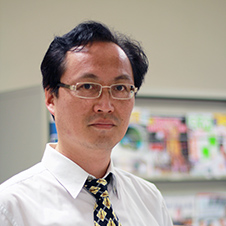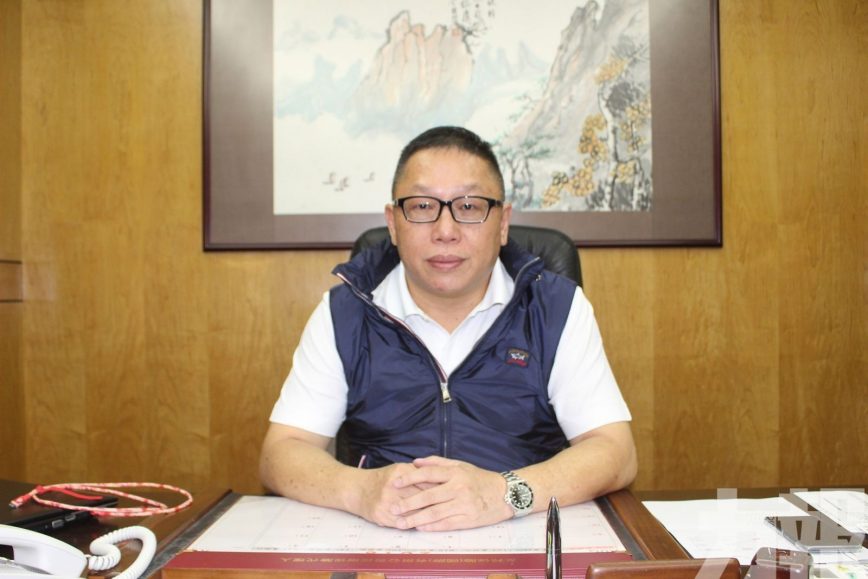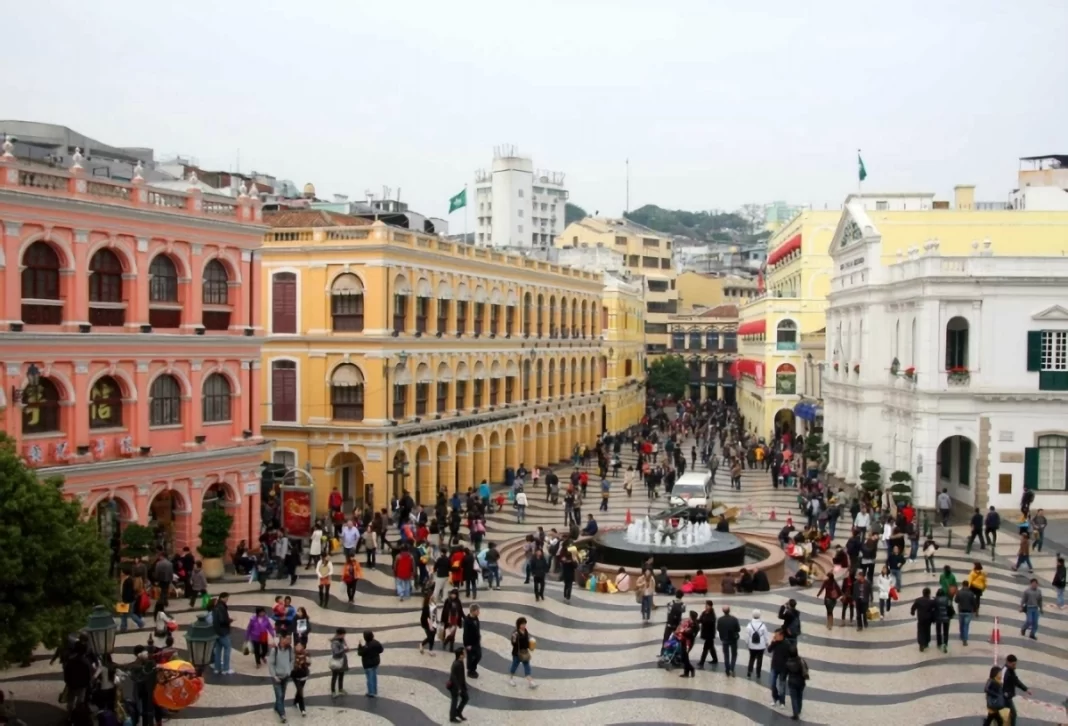The labor shortage in Macau is the result of multiple factors, ranging from limited quotas for the hiring of non-resident workers, a shift in employee willingness and efforts to maintain quality control, says a local gaming scholar.
Despite the city opening up again in early January, the labor shortage has kept Macau’s integrated resorts from operating at full capacity, with previous estimates that only around 70 percent of available hotel rooms were open, while supporting facilities – such as F&B – were also operating at limited quotas, as IR operators aimed to maintain quality standards
Speaking to AGB, a gaming scholar from the Center for Gaming and Tourism Studies of the Macao Polytechnic University says that this focus on quality control has also led to long queues for various venues in the city’s multi-billion dollar venues, even as the city aims to sell its non-gaming image – especially through the use of young influencers, which peddle the city primarily through social media.
Being an image-centric strategy, professor Carlos Siu notes that “the IRs need to maintain their service quality, meaning that some hotel rooms are still out of use because if they were fully opened this might result in complaints from clients”.

“We can see a lot of influencers are publishing advertising content about Macau at one time,” furthers the scholar, noting that if the balance between supply and quality tips too far in the wrong direction, these campaigns could backfire.
Even though operators themselves and Macau’s tourism board have taken a strong bet on the power of the social media influencers by directly inviting them to the properties and city’s tourism hotspots, these so-called KOLs (Key Opinion Leaders) also attract more of the younger demographic, which are keen to share their experiences online, aiming to become KOLs themselves.
The sharing of the tourism experience online, even through live-streaming of the dining, hotel, entertainment or tourism experience, means that the quality of the engagement cannot be filtered before it’s released to the public, and any faults in service will be picked up by the millions of followers the influencers directly publish their content to.
The professor notes that only by balancing their actual capacity with their tourism campaigns will this type of marketing most benefit the operators’ image. Any misstep along the way could leave longer-lasting impressions, due to the speed at which experiences and opinions are shared online.
Macau has long been plagued by labor shortages, with the hospitality industry a constant advocate for improving labor policies to allow Macau to import more foreign labor to overcome its shortcomings.
The SAR saw an exodus of exactly this type of labor during the pandemic, as non-residents – known as Blue Card holders – left by the tens of thousands. This exodus ranged from top foreign executives to unskilled labor – encompassing every level from IR management to front-of-house service and cleaning staff.
While Andy Wu, president of the Macau Tourism Industry Association, notes that the labor shortage may have begun easing this month, the legacy problem of hiring continues.
“Macau’s tourism industry is facing some difficulties in hiring not only local employees but also mainlanders”, notes Wu.
Non-resident workers from mainland China are the primary source of Macau’s foreign labor, followed by labor from numerous Southeast Asian nations including the Philippines and Vietnam. And, as Macau’s tourism lifeblood is mainland Chinese visitors, nearly all gaming and hotel positions require Mandarin-language-speaking skills.
But the city’s push to attract foreign visitors – both as mandates to gaming operators, but also as the key catchphrase of the government in its non-gaming drive, means that this labor can’t only be limited to the mainland China market, and Macau will have to allow for recruiting of droves of non-residents to meet its needs.
“It has been a trend that less people are willing to come to work in Macau after the SAR phased out its COVID-19 curbs,” notes Wu.
According to his expectations, non-resident workers “will only start to work after April”.
Macau companies are limited in their abilities to hire non-residents based upon the type of business they conduct, the needs of the market and the skill set of local employees (as the government staunchly focuses on local-hiring-first policies). While IR operators have the boon of employing a large number of locals, therefore allowing for larger quotas of non-resident labor, they must be extremely selective in how many they employ at one time. The operators have also lost a large part of their quotas as non-resident Blue Cards were cancelled during the pandemic and the quota, once gone, is very difficult to get again.

Over the three years of the pandemic, Macau saw its non-resident workforce lose 40,000 workers, with 10,000 of these coming from the hospitality industry.
Operators now walk the tightrope of negotiating for increased labor quotas, forced to justify each non-resident worker they hire, and maintaining their good will with the government.
And Macau’s population has become increasingly protective that any open positions should only go to locals. This, however, is in sharp contrast to the willingness of Macau workers to shift into new positions, learn new skill sets, and settle for other employment offerings that aren’t up to the standards they had enjoyed before the pandemic.
Recent data showed that only a handful of positions were actually open in the gaming sector itself, even as it saw the same exodus of workers suffered by the other tourism-linked industries during the pandemic. Employment drives have been continually held by the Labor Affairs Bureau (DSAL), aimed at encouraging these gaming and tourism employees to shift to other skill sets, but with limited success. The fact that the DSAL also has a dominant hand in deciding which non-resident labor is authorized makes for a double-edged sword for operators – as the overall impression the bureau has given so far is that local labor must (and can) be successfully retooled to meet Macau’s needs before it resorts to importing more foreigners (including mainland Chinese).
While, currently the focus is more on non-management positions, covering such necessities as room cleaning, restaurant and front-of-house hotel staff and other immediate needs of the mass return of tourism, if Macau is expecting to reach its tourism high point of nearly 40 million tourists, while maintaining its quality and also luring non-Chinese visitors, experts have repeatedly pointed out that labor policies will need to undergo a shift to be more open towards foreign labor in higher positions as well.
Top executives who were made redundant during the pandemic could also be reticent to return, even if offers are on the table for them to do so, with many having shifted to other positions in Southeast Asia, Las Vegas or Australia, as well as other growth markets which were quicker in reopening and giving value to the higher-level experience of the industry experts which left Macau in droves.
Now, Macau is hoping to average 50,000 tourists daily, having already reached 57,000 in February, and Macau’s tourism office is even expecting up to 60,000 daily visitors ahead of the upcoming Labor Day holiday at the beginning of May – a prime period for Chinese tourism. During the peak of Chinese New Year, the city saw over 90,000 daily visitors.
While its marketing campaigns are in full effect, the quality of the experience will largely determine whether these visits are merely a one-off, or whether tourists choose to return, as well as what impression they give to not only their immediate contact circle, but also the millions that they engage with through social media platforms. And consumers, given their constant access to the highly-beautified images on social media, are ever more demanding to receive the experience that they have been sold.
So far, Macau’s authorities have shown little desire to shift their stance on hiring practices, giving the industry little room but to make due with what it has and maximize its resources while minimizing its exposure to possible faults or negative experiences for guests.
But there’s little doubt from those who are pushing for the ongoing health of Macau’s tourism industry that something will have to change, if the lofty benchmarks the city has set for itself are to be achieved.






















